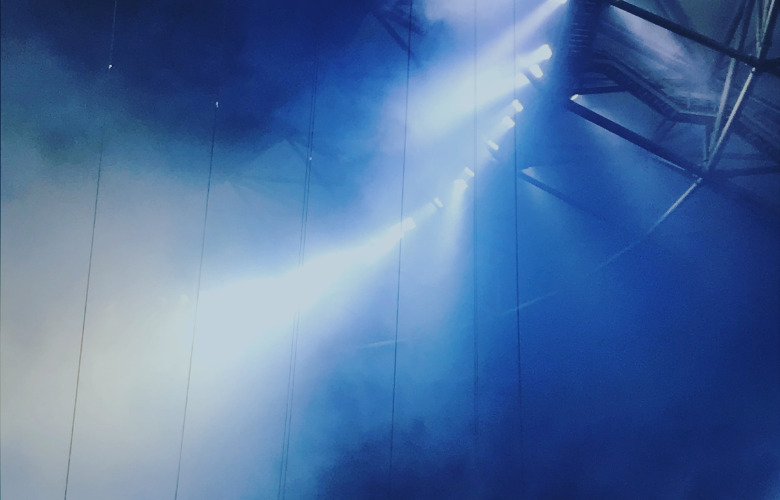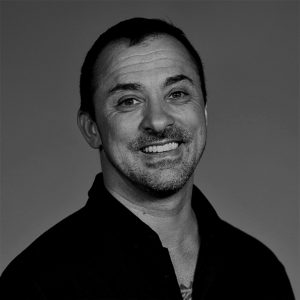
E-hui is an independent lighting designer and digital stage technician currently based in Singapore. She creates art mostly in theatre and dance, and more recently theatre for young audiences. Passionate about the melding of art and science in theatrical production, E-hui often approaches artistic creation from a practical and problem-solving perspective, and especially loves to collaborate with like-minded artists to produce works that inspire the audience to reflect and enact positive change.
I grew up in Singapore, and up until I was about to apply to universities, I thought I was going to become an engineer and live in Singapore for the rest of my life.
But while math and science subjects were my favourite, I had always been interested in the arts outside of school, attending art, drama and dance classes, as well as performances. This since I was four years old.
I just didn’t think of it as a career path until I had my first taste of working in professional theatre.
Thankfully, with the support of my parents and a government scholarship, I was able to pursue my passion studying theatrical design. I initially thought I wanted to be a scenic and lighting designer, but quickly realized that lighting design came much more naturally to me.
I enjoyed the technical side of it as well, so I shifted my focus to being a lighting designer and technician instead.
It really is the melding of art and science, and makes way more sense when I explain it this way to people who are confused about my extreme change in career choice from engineering to theatre.
Yes, I am currently based in Singapore. The long story short is that I had to come back to serve my scholarship bond, and could not return to the US in 2020 as planned.
But despite being “stuck” here, I am also glad to have been given the opportunity to pivot my practice into more than just lighting. The majority of my current work is as a digital stage manager and technician for school tours.
And, while I would love to get back to designing live theatre again, I really appreciate the accessibility and potential for outreach that digital theatre can offer.
Thus, even after the pandemic, I’ll be interested in collaborating in other works that are produced specifically for the digital stage as well.
Honestly, a lot of what I learnt in both places translated when I started going back and forth.
The team structure and personnel is very similar, even if the technical terms can sometimes draw blank looks when I slip up and use terminology from elsewhere.
And, actually, the main problem I faced when starting college in the US, and when returning to Singapore seven years later, was learning how to estimate and do calculations in imperial vs metric.
I grew up with only the metric system, so suddenly I had to count in twelves which was awful to correct whenever you made a calculation error.
And when I came back to Singapore, all the standard measurements I had learnt in school were imperial, so I had to re-learn what 18″ centres and 10′ focus areas meant in metres.
I think knowing both systems makes collaborating with touring companies much easier though.
As for creative expression, the range of stories told are definitely more varied and bold in the US. Especially in terms of gender and sexuality. But, even with being more conservative, there isn’t a lack of vibrancy in Singapore with a significant percentage of productions focusing on local and multi-cultural stories.
I guess it is also difficult to compare the artistic qualities of theatre in both countries since the number of producing organizations are vastly different, but the work culture has definitely been very similar in my experience.
Biggest advice: make time for adulting while you grow your craft.
A lot of theatre and arts programmes will teach you how to make art and be creative, but you have to find your own resources to learn how to do your taxes properly and apply for health insurance.
Success is easier to achieve when you have all your ducks in a row and you feed all of them consistently. Other than that, pursue your dreams but don’t be afraid to diversify.
I’m really glad I picked a school that provided me with a broad curriculum covering all areas of design and technical theatre. Because it really helped me move my career along. Especially when I was starting out. And also, when expanding my scope to include digital stage production during the pandemic.
I have heard of places that dismiss folks as designers once they know they also do technician work.
Personally, I find that the work I do in both aspects informs the other, and having experience in other areas helps me collaborate better with other departments as well.
I would also strongly recommend taking a gap year or two between high school and university/college.
I had a couple of classmates who weren’t entirely sure that theatre was right for them. And especially in the US, it is a huge waste of money to be blowing thousands on tuition while you figure out what you want to do.
Take a year off and try it out for real before you dive into four years of education – and this goes for any other occupation too.
Singapore bounced back really quickly and we’ve been living close enough to normal for most of the past year already.
But the theatre industry is definitely still suffering, and a lot of projects have had to be scaled down, postponed or cancelled.
However, as an independent artist, this pandemic has given me the time to read a lot more and re-centre myself in terms of adapting sustainable and inclusive practices.
I still have a lot more learning to do. And to also put new practices into action once we really get back into producing theatre full swing again. But these months have definitely been refreshing and stabilizing.
I do admit that I am privileged to have been able to take this sabbatical comfortably and even continue working safely during the pandemic, and I have been trying to give back to communities and other folks that have not been able to do the same.
The pandemic has forced me to be more efficient at the start and end of the day when my awake hours coincide with those in the US, and be a more effective communicator online in general.
I also found that I do enjoy consuming theatre digitally. And, frankly speaking, very much appreciate being able to support the arts from the comfort of my own home.
I think the pandemic ushered in a new era of digital theatre and I hope it is here to stay.
I think it is still too early to tell what has truly changed and will stick since the pandemic.
But I hope that the overall sense of determination to make theatre more equitable, diverse and inclusive will kickstart a shift to better our industry.
Among other things, I really hope that companies will get rid of 10 out of 12s, because not only is it unhealthy and excludes folks with families, but also nobody is really functioning productively at the end of the day. Especially when you’re in production and have been there for 14h already.
Passion is one thing, but when people choose to make theatre their career, they should treat it more like a job than most of us currently do. We should not work ourselves to death.
Personally, I would like to continue doing more inclusive digital theatre while bringing traditional in-person lighting designs back into the mix.
I also started being more involved in TYA before the pandemic hit, and would like to continue expanding my work in that area when I get back to the States.
But, in general, the long term goal is to focus my work more on theatre that centres on advocacy and activism, and to collaborate with like-minded folks to enact positive change.
Kenneth Williams, Engineer & Musician – Black History Month (Part 1)
Martin Thomas, Lighting Designer – Black History Month, R. O. C. U.


Liam Klenk was born in Central Europe and has since lived on four continents. Liam has always been engaged in creative pursuits, ranging from photography and graphic design, to writing short stories and poetry, to working in theatre and shows. In 2016, Liam published his first book and memoir, 'Paralian'.
Read Full Profile© 2021 TheatreArtLife. All rights reserved.

Thank you so much for reading, but you have now reached your free article limit for this month.
Our contributors are currently writing more articles for you to enjoy.
To keep reading, all you have to do is become a subscriber and then you can read unlimited articles anytime.
Your investment will help us continue to ignite connections across the globe in live entertainment and build this community for industry professionals.